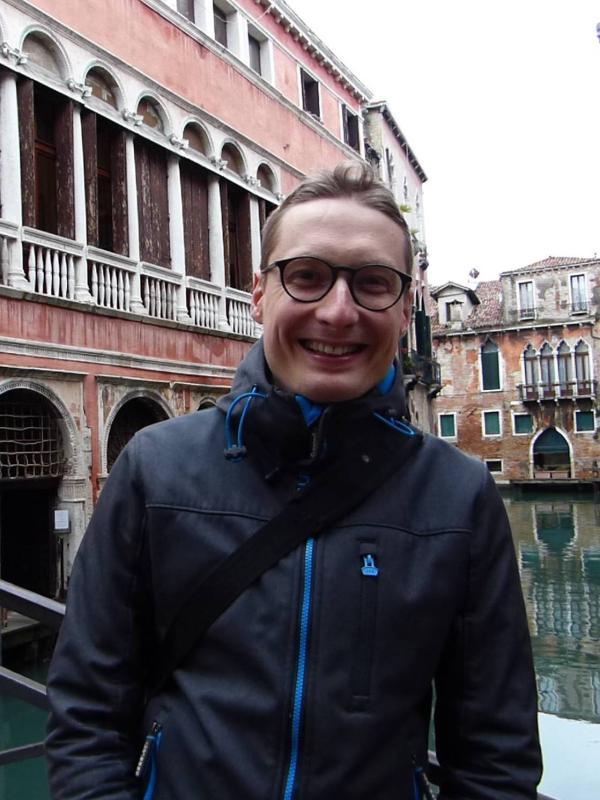
Dima Arzyutov
Assistant Professor, Department of Slavic and East European Languages and Cultures
416 Hagerty Hall (office) & 400 Hagerty Hall (mailing)
1775 College Road
Columbus, OH
43210
Areas of Expertise
- Siberia and the Circumpolar North
- Historical Anthropology, Ethnohistory, Microhistory
- Environmental History and Anthropology
- Sonic and Visual Anthropology and History
- Anthropology and History of Archives and Archiving
- Museum Anthropology and the History of Collections
Education
- Ph.D. in History of Science, Technology, and Environment, KTH Royal Institute of Technology, Stockholm, Sweden
- Ph.D. (Candidate of Sciences) in Anthropology, Peter the Great Museum of Anthropology and Ethnography (Kunstkamera), Saint Petersburg, Russia
- M.A. (diploma, Hons.) in History and Archaeology, Kemerovo State University, Siberia
I am a historical anthropologist interested in a wide range of topics concerning the transnational history of knowledge in Siberia and the Circumpolar North, where I have been collaborating with local and Indigenous communities (predominantly with Nenets and Altai) for more than two decades. Furthermore, my research and teaching interests also comprise the themes of human-environment relations, the social and cultural lives of archival collections and museum artefacts, visual and sonic studies, and Siberian Indigenous and settler-colonial literatures. My research methodologies are based on a relativistic and bottom-up understanding of human practices and ideologies and subtle intersections of academic and “non-western” ways of knowing. As a field ethnographer, I have conducted research in Siberia and the Russian North, Northern Finland, Svalbard, North Caucasus, and Inner Mongolia.
I am currently working on a few projects. One is dedicated to the centennial history of voice recordings in Siberia and the Phonographic Archive of the Pushkin House in Saint Petersburg which has held them since the 1930s (sponsored by the Modern Endangered Archives Programme and UCLA library, 2023-2025). Within this project, our team – which also comprises Professor David Anderson, University of Aberdeen, UK and Dr Svetlana Podrezova, Pushkin House, Russia – work on the digitization of the unique collection of old audio recordings of Siberian Indigenous voices. The digitized collection will be shared with the “source communities” in North Eurasia and available online.
My other projects cover several topics from the environmental history of the Arctic and Siberia. I am working on the history of epistemically entangled seed banking and agricultural experiments in the High North (funded by Eudaimonia Institute, Oulu, Finland; together with Professor Vesa-Pekka Herva and Dr Esa Ruuskanen, University of Oulu, 2022-2026).
Another project is related to the social and environmental history of Novaya Zemlya. This Russian Arctic archipelago is infamously known for the forced relocations of Indigenous Nenets and Pomor communities to/from the islands and the environmental and political impact that the Novaya Zemlya nuclear testing ground had on the planet. As is known, the Anthropocene image of the archipelago was shaped by the Tsar Bomba testing in 1961 which was one of the pivotal and terrifying events during the Cold War. My in-progress monograph based on thorough analysis of archival materials, rare publications and also oral history accounts about Novaya Zemlya is tentatively titled On the Other Shore: Life and Death in the Arctic Anthropocene Archipelago.
Furthermore, for many years, I have been working on the transnational history of Soviet anthropology, namely how approaches, ideas and practices of Soviet ethnographers and the communities they collaborated with crossed one another, coevolved, and consequently co-shaped notions of the environment, social life, and the past. This project has already seen the birth of edited collections, articles and my first monograph entitled The Northern Book of Origin: Histories of the Siberian Indigenous Ethnogenesis Project, which is under contract with the University of Nebraska Press. Moreover, Drs Sarah Moritz (Thompson Rivers University, Canada), Laura Siragusa (OSU) and I are also working on the edited volume about the role of local and Indigenous collaborators in the knowledge production in the North. The preliminary title of the collection is Of Those Who Knew the Way: Indigenous and Local Companions and the Co-Production of Knowledge in the Circumpolar North. Within this direction of my research, our team of historians and anthropologists – Professor Sergei Kan (Dartmouth College), Drs Laura Siragusa (OSU), Alex Pershai (University of Windsor, Canada), and I – has completed a two-volume book project of letters and documents the founder of American Anthropology Franz Boas and his Russian colleagues and friends exchanged in the period from the late 19th century until the death of Boas in 1942. The edition entitled Paper Bridges Between Franz Boas and Russian Anthropology is forthcoming also with the University of Nebraska Press.
Within the history of anthropology, I am also working on a book project (together with David Anderson; its preliminary title is Writing Anthropological Theories on the Ruins of Empires: Lives and Archives of Sergei and Elizabeth Shirokogoroff) about the life history of anthropology couple Sergei (1887-1939) and Elizabeth Shirokogoroff (1884-1943) and their archives. It was born out of long-term archival, museum, and field research, which resulted in a three-volume edition of documents of the Shirokogoroffs published in 2021-22. In our planned monograph, we aim to show the extent to which this couple changed the profile of many anthropologies in Imperial and Soviet Russia, China, Germany, South Africa, and others: from the invention of the highly controversial theory of ethnicity (etnos) to one of the earliest conceptualisations of cultural relativity in English-language anthropology through the notions of ‘psychomental complex’ and the so-called ‘Tungus hypothesis’. By tracing their widely scattered archival documents, multilanguage publications, and network of colleagues and field co-operators, we reconstruct the social and material histories of the transnational production of anthropology knowledge.
I also actively participate in creating Arctic- and Siberia-oriented museum exhibitions at the British Museum in London (UK), Nordiska Museet in Stockholm (Sweden), the Museum of Anthropology and Archaeology at Cambridge University (UK), and the Russian Geographical Society in Saint Petersburg (Russia).
What’s more, I love hiking, berry, and mushroom picking. Although, every fall, my wife beats me in porcini hunting, which she mysteriously knows how to find.
